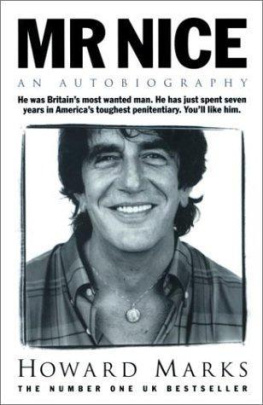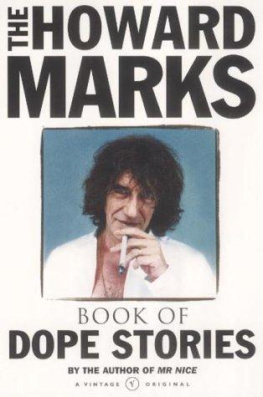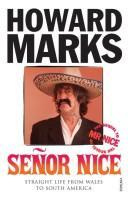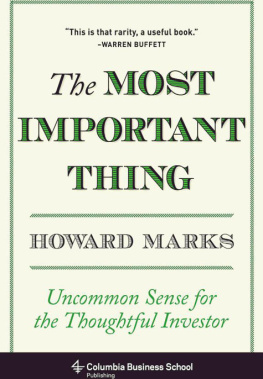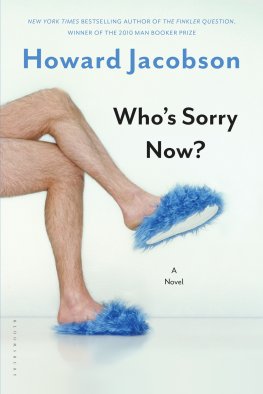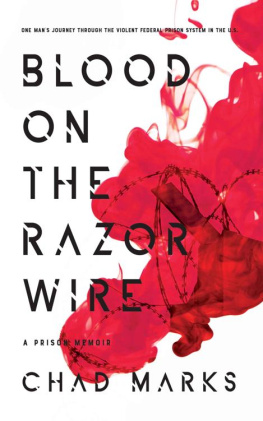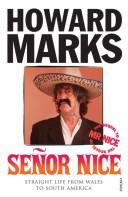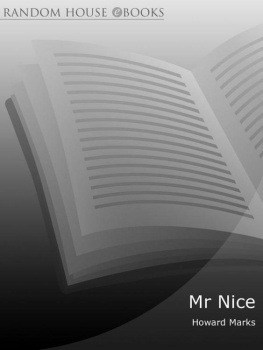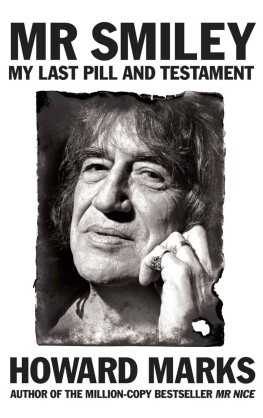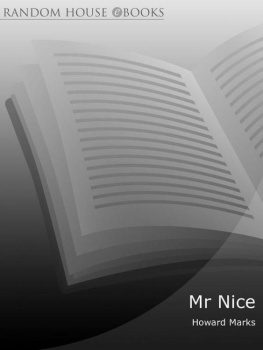This eBook is copyright material and must not be copied, reproduced, transferred, distributed, leased, licensed or publicly performed or used in any way except as specifically permitted in writing by the publishers, as allowed under the terms and conditions under which it was purchased or as strictly permitted by applicable copyright law. Any unauthorised distribution or use of this text may be a direct infringement of the authors and publishers rights and those responsible may be liable in law accordingly.
Howard Marks has asserted his right under the Copyright, Designs and Patents Act 1988 to be identified as the author of this work
This book is sold subject to the condition that it shall not, by way of trade or otherwise, be lent, resold, hired out, or otherwise circulated without the publishers prior consent in any form of binding or cover other than that in which it is published and without a similar condition, including this condition, being imposed on the subsequent purchaser
Addresses for companies within The Random House Group Limited can be found at: www.randomhouse.co.uk/offices.htm
The Random House Group Limited Reg. No. 954009
The Random House Group Limited supports The Forest Stewardship Council (FSC), the leading international forest certification organisation. All our titles that are printed on Greenpeace approved FSC certified paper carry the FSC logo. Our paper procurement policy can be found at www.rbooks.co.uk/environment
Howard Marks is an acclaimed travel and sports writer, TV personality, and DJ. For the last ten years he has had a series of successful one man shows. He lives in Europe and continues to campaign for the legalisation of marijuana.
ALSO BY HOWARD MARKS
The Howard Marks Book of Dope Stories Seor Nice
Acknowledgements

I would like to thank the following for their assistance, support, and editing: Ann Blain, David Godwin, Bee Grice, Judy Marks, Amber Marks, Francesca Marks, Geoffrey Mulligan, Mick Tyson, and Helen Wild
Introduction

I was running out of passports, ones I could use. In a few weeks I intended to visit San Francisco to pick up several hundred thousand dollars from someone keen to exploit his connections, both with me and with a bent US Customs Officer working in the imports section of San Francisco International Airport.
A few years earlier, I had been declared the most wanted man in Great Britain, a hashish smuggler with documented links to the Italian Mafia, the Brotherhood of Eternal Love, the IRA, and the British Secret Service. A new identity was vital. Id already gone through about twenty different identities, most of which had been backed up by a passport, driving licence, or other indicators of documented existence, but theyd all either been discovered by friends/enemies or compromised by featuring in some suspicious trail meandering through a recent scam.
We drove to Norwich. After a couple of awkward meetings with go-betweens, I was introduced to a gentle guy named Donald. I couldnt tell if he was a drinker, a stoner, or a straighter. His kitchen gave no clues. He looked normal, except that his eyes danced like those of a villain.
We can talk privately out here, he said and took me to a garden shed.
I need a passport, Don, one thatll stand up to all checks.
You can have mine. I wont be needing one. But theres one problem.
Whats that?
Ive just done twelve years of a life sentence for murder.
Convicted murderers, although clearly people with a criminal record, would rarely be declared as unwelcome at a countrys borders. They were regarded as mere menaces to individuals rather than threats to the fabric of society. The latter attribute tended to be restricted to dope dealers and terrorists.
Ill give you a grand for it, I said, and a few hundred quid from time to time when I need more back-up.
I was thinking of a driving licence, medical card, local library card. Just a passport with no supporting identification is suspicious. A membership card to the local billiards club, obtainable cheaply and without proof of identity, is enough to give the required credibility.
Thats the best deal Ive ever been offered for anything.
Whats your last name, Don? I asked. Id been lumbered with some terrible ones in the past.
Neece.
How do you spell it?
N-I-C-E, just like the place on the Riviera. It was up to Don how he pronounced his name. But I knew I would pronounce it differently. I was about to become Mr Nice.
One

BRITISH
Marks! yelled the guard. Whats your number?
41526-004, I mumbled, still in a really deep sleep. My number was used more often than my name, and I knew it just as well.
Get all your shit together, he ordered. Youre leaving.
Slowly I woke up. Yeah, Im leaving. I was leaving El Reno.
El Reno, Oklahoma, houses the Federal Bureau of Prisons transit facilities and is host to between one and two thousand federal prisoners, who are cajoled, bossed, and bullied by a few hundred guards. Every prisoner who is required to be moved from one US federal prison to another passes through El Reno. Even if the prisoner is being transported from North Dakota to South Dakota, he still has to go via El Reno. I had been through there five times. Some had been through more than fifty times. Expensive illogicalities and inefficiencies do not worry the monsters of American bureaucracy, and the taxpayers are enthusiastic and eager to spend fortunes in the name of fighting crime. Prison places cost the US taxpayer more than university places. The American belief that prisons are the best way to combat crime has led to an incarceration rate that is at least five times that of almost any other industrialised nation. Overcrowding is endemic. Conditions are appalling, varying from windowless, sensory-deprived isolation to barren and futile brutality.
Mostly, prisoners are taken to El Reno in aeroplanes confiscated by the US Government from the Colombian cocaine cartels, who have made billions of dollars out of Americas War on Drugs. There are at least two large airliners, each seating well over one hundred prisoners, and numerous smaller planes carrying up to thirty passengers. Every day, between three and six hundred prisoners arrive and leave. Arrivals take place in the late afternoon and evening; departures take place in the early morning. Flying courtesy of the Federal Bureau of Prisons is a gruelling business. The only consolation was that this would be my last of over a dozen flights on this airline, known as Conair. I was going to be released in three weeks. My release date was the same as that of Mike Tyson. I had been continuously in prison for the last six and a half years for transporting beneficial herbs from one place to another, while he had done three years for rape.

